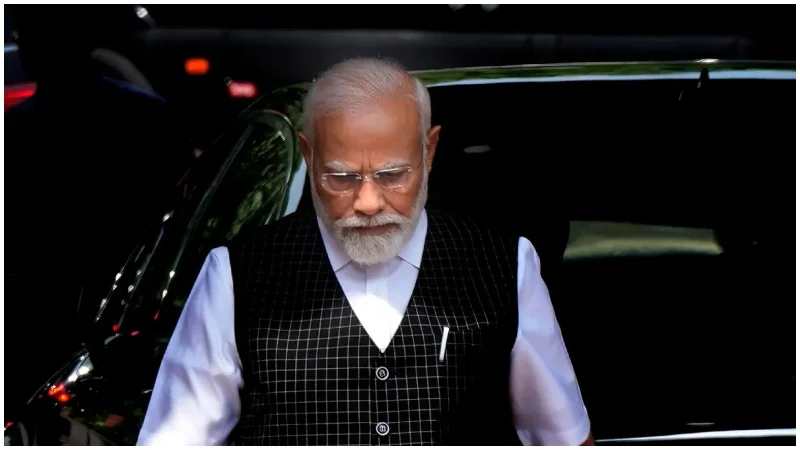
2024 Lok Sabha elections have introduced a significant shift
BJP is trailing with leads in only 237 seats far from the majority mark
This outcome has set speculation on formation of next government
In a surprising turn of events, the 2024 Lok Sabha elections have introduced a significant shift in India’s political landscape. As the vote counting progresses, the Bharatiya Janata Party (BJP) is trailing with leads in only 237 seats, far from the majority mark. Meanwhile, the Congress party shows leads in 97 constituencies. This unexpected outcome has set off a wave of speculation about the formation of the next government.
Also read: NDA nears victory in 2024 Lok Sabha elections, echoing 1991 Congress triumph
The pressing question now is: who will play the kingmaker if the BJP aims to return to power? Emerging trends indicate that Chandrababu Naidu’s Telugu Desam Party (TDP) and Nitish Kumar’s Janata Dal (United) (JDU) could hold the key. With the TDP leading in 16 seats and the JDU in 15, their combined strength of over 31 seats positions them as crucial allies. Without their support, the National Democratic Alliance (NDA) falls short of the majority needed to form a stable government.
Political experts suggest that if the TDP and JDU play pivotal roles in government formation, Prime Minister Narendra Modi’s potential third term could face significant challenges. Their influence may lead to compromises on major policy initiatives and a more fragmented legislative agenda. The involvement of these regional parties could introduce new dynamics, potentially slowing down key reforms and altering the trajectory of the Modi administration.
As final results trickle in, the situation remains fluid. The BJP will need to engage in complex negotiations and forge strategic alliances to retain power. For Congress and other opposition parties, this scenario presents an opportunity to reassert their influence and challenge BJP’s dominance.
In the days ahead, as coalition talks heat up and final results are declared, India’s political future hangs in the balance. The critical question for the BJP is whether it can adapt to this new reality and secure the necessary support to govern effectively.

2024 Lok Sabha elections have introduced a significant shift
BJP is trailing with leads in only 237 seats far from the majority mark
This outcome has set speculation on formation of next government
In a surprising turn of events, the 2024 Lok Sabha elections have introduced a significant shift in India’s political landscape. As the vote counting progresses, the Bharatiya Janata Party (BJP) is trailing with leads in only 237 seats, far from the majority mark. Meanwhile, the Congress party shows leads in 97 constituencies. This unexpected outcome has set off a wave of speculation about the formation of the next government.
Also read: NDA nears victory in 2024 Lok Sabha elections, echoing 1991 Congress triumph
The pressing question now is: who will play the kingmaker if the BJP aims to return to power? Emerging trends indicate that Chandrababu Naidu’s Telugu Desam Party (TDP) and Nitish Kumar’s Janata Dal (United) (JDU) could hold the key. With the TDP leading in 16 seats and the JDU in 15, their combined strength of over 31 seats positions them as crucial allies. Without their support, the National Democratic Alliance (NDA) falls short of the majority needed to form a stable government.
Political experts suggest that if the TDP and JDU play pivotal roles in government formation, Prime Minister Narendra Modi’s potential third term could face significant challenges. Their influence may lead to compromises on major policy initiatives and a more fragmented legislative agenda. The involvement of these regional parties could introduce new dynamics, potentially slowing down key reforms and altering the trajectory of the Modi administration.
As final results trickle in, the situation remains fluid. The BJP will need to engage in complex negotiations and forge strategic alliances to retain power. For Congress and other opposition parties, this scenario presents an opportunity to reassert their influence and challenge BJP’s dominance.
In the days ahead, as coalition talks heat up and final results are declared, India’s political future hangs in the balance. The critical question for the BJP is whether it can adapt to this new reality and secure the necessary support to govern effectively.
